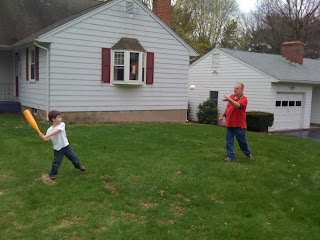 |
Image courtesy of fuzzimo |
He was indeed a genius, innovator, and pioneer. I’m writing this on a Macbook in close proximity to my iPhone, two iPods, while listening to a decade’s worth of songs downloaded from iTunes, so I don’t have to be sold on Jobs’ place in the Pantheon of America’s best minds.
However, the word I’ve had the most trouble with has been exceptional. I’ve always had issues with this word anyway, even more so when coupled with the adjective American. I’m as patriotic as they come, but to defend the idea that my fellow citizens and I are exceptional considering that we glorify the casts of Jersey Shore and The Real Housewives of Orange County, can’t get out of our own ways politically, and barely notice we’re still fighting two wars overseas that have claimed more an untold number of lives on both sides is as dangerous as it is stupid.
In my opinion, we are all exceptional—regardless of ethnicity, color, or creed—just by being alive. When our ancestors left the cave and stood on two feet—and if you believe recent studies ran, not walked, to outlast our stronger and smarter Neanderthal competitors—they left us a legacy of being able to tame the earth and cast our own destinies. One could argue that war and pollution have tarnished that legacy, but the fact that we’re still moving forward in time despite our differences is indeed exceptional.
I’m not saying that there haven’t been moments when American achievements have outshone those of the rest of the world. We built railroads to connect our distance coastlines; we took to the road, air, and the reaches of outer space in the spirit of efficiency, adventure, and discovery; we harnessed the power of steel, wiped out smallpox and polio, and—thanks in large part to Jobs—changed the way we listen to music, read magazines and books, and interact with one another. But after only 235 years of existence, can we really say that our exceptional moments are greater than those of the countries we share this world with?
Were Martin Luther King’s peaceful efforts to move the civil rights movement along during the 1960s more significant and inspiring than Gandhi peacefully inspiring a country to shake off the yolk of British imperialism? Franklin D. Roosevelt steadied a country during World War II, but was it more exceptional than Winston Churchill holding his country together with twine and Duct tape while enduring constant bombardment from Hitler’s Luftwaffe? Is anything any of our brightest and most talented innovators, leaders, or business people are doing right now illuminating our world more than those that live in societies whose existences endure through war, famine, and choice? Or has the fact that America has accomplished so much in such a short period of time an indicator that we’re exceptional?
I don’t have good answers for any of these questions. In fact, I have no answers. All I know is that Jobs wasn’t much different than any of us when he thought up a good idea. The difference is that he, like so many great minds throughout history, didn’t let those ideas go down the shower drain where they were born; he had the courage, will, and persistence to see their birth. We all have this exceptional ability to change our world no matter what country we were born into. We all need to start thinking of the next big idea, the next step forward. Steve Jobs himself said it best in his address to Stanford University’s graduating class in 2005:
Your time is limited, so don't waste it living someone else's life. Don't be trapped by dogma, which is living with the results of other people's thinking. Don't let the noise of others' opinions drown out your own inner voice, heart and intuition. They somehow already know what you truly want to become. Everything else is secondary.
 |
Image courtesy of grace176 |
To put the bigger picture back in American terms, our world didn’t go dark after the passing of Thomas Edison, statesmanship didn’t perish along with Benjamin Franklin, journalistic standards didn’t erode when the world lost Nellie Bly, and our idealism wasn’t tempered by the assassination of John F. Kennedy. It wasn’t that Jobs was exceptional. Like the influential men and women that came before him, he was just better able to figure out what was exceptional about the rest of us.
Which is why I’ll go to sleep easily at night even though his light has been extinguished. I’m content knowing that the next great innovator is out there somewhere, ready to not only redefine what we want, but who we are. I won’t care what nationality, race, religion, or sexual orientation he or she is; as long as they can read the tea leaves as well as Jobs did and point us toward our next collective exceptional moment.
But I hope he or she hurries. Because of Jobs, we’re all a little impatient.
*I was told when I was writing this that I was pretty daft if I believed there were no other American innovators on the level of Steve Jobs. I’m not saying that at all. I’m just saying that Americans don’t have a monopoly on being exceptional, now or ever. I’m just kick-starting a debate, so forgive any shortcomings this post might have.






















